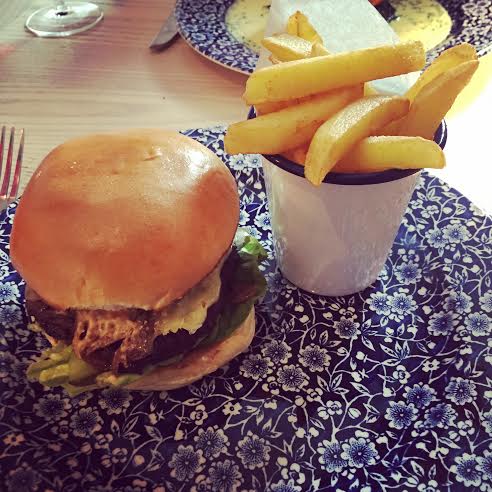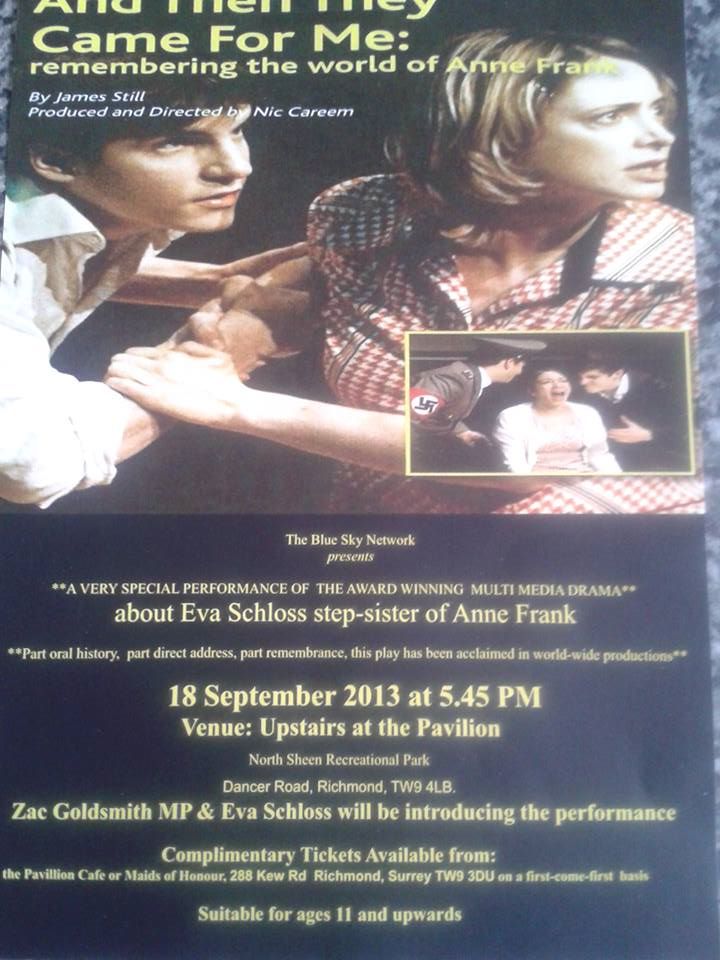Parts and Labour is the new restaurant that has just opened in Whitechapel within the Qbic London City Hotel. Parts & Labour serves modern British food and offers all day dining within a cool and vibrant space. The decor is fresh and funky, featuring Scandinavian design influences. Channelling the Jewish heritage of the Whitechapel area, Parts & Labour also serves an array of traditional Jewish dishes such as Toasted Rueben (a hot salt beef sandwich, with sauerkraut and Swiss cheese), Chicken soup with dumplings and Sabich (flat bread topped with egg, aubergine and salad).
My colleague, Paloma, and I take our seats and I order a coke. Paloma goes for a Spanish Rioja which smells amazing. She likes it. The menu looks great and it takes us a while to decide. In the end I go for something traditional: Ham & Cheddar Croquettes with Herb Mayonnaise and Paloma has the Chicken Liver Pate, Apple Chutney and Brioche. The chicken liver is creamy and soft with a delicate hint of metallic flavours. It has little chunks of onion and spread over the sweet, sticky and toasted brioche, with a lick of chutney combined gives all the right textures and tastes. My croquettes are delicious, the filling is perfect and they are just the right size. The herb mayonnaise is gorgeous and goes perfectly with the croquettes.
For our mains I have the 6oz Cheeseburger, Onion Marmalade and Chips and Paloma has the Salmon Fishcake, Buttered Spinach and Brown Shrimp Butter Sauce. My burger is AMAZING. Really good. The onion marmalade goes perfectly and you can’t go wrong with chips. The tomato ketchup comes in a cool, retro tomato. The salmon fishcake was beautifully browned and fluffy inside. The sauce was delicious, salty butter fused with spinach.
For dessert we have the Apple & Rhubarb Crumble with Custard and Chocolate Marquise with Prunes, Pistachio and Meringue. The crumble is crispy and sweet which complimented the sour taste of the rhubarb. It is tasty indeed. The Chocolate Marquise is something to behold: I don’t normally order anything with prunes or pistachio but this dish is amazing. The Chocolate Marquise is divine, the pistachio mousse is mouth-watering, the meringue is perfect and the prune sauce is good. It works well together and is a really wonderful desert. I want to eat it again.
The food is great, the hotel is quirky and cool, and the service is excellent. We loved Parts & Labour. I might even go again despite living on the opposite side of London.
https://london.qbichotels.com/en/enjoy-our-bar-and-restaurant.html
For reservations 0203 021 3300 or email: reservations@partsandlabour.london
Qbic London City Hotel
42 Adler Street,
London,
E1 1EE










